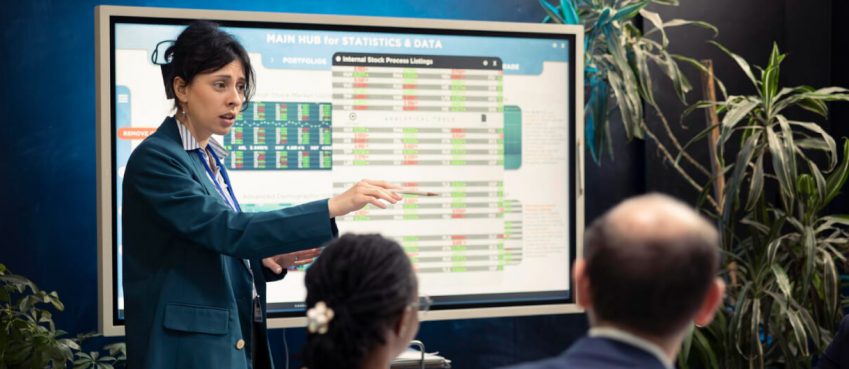
Advancements in technology have significantly improved not only the quality of human life but that of animals as well. Over the years, veterinary medicine has witnessed significant transformations that enable vet practitioners to conduct faster diagnoses and provide more accurate prognoses, ultimately saving animals’ lives. Using technology in vet practices has also resulted in better care outcomes, not only for the pets but also for the owners.
Here are four ways veterinary tech is evolving.
1. Vets are Using Data
Data and Artificial Intelligence (AI) are expected to plan an important role in the future of the veterinary industry. They can advance precision in veterinary medicine, as veterinarians constantly provide evidence-based recommendations on treatments and procedures for some of the most common conditions in pets. Evidence-based veterinary care helps vets ask the right questions regarding the animal’s health. The data gathered can also reveal insights that can set researchers on the right track for further investigations.
One example of how data can contradict common perceptions is the recent study from VetCompass analyzing the risk factors of health-related deaths among dogs in the UK. Despite the notion that pets being left inside a vehicle on a hot day is the leading cause of their death, looking into the vet recovers of more than 900,000 dogs have revealed that in about 75% of cases, the trigger behind the heatstroke was, in fact, over-exercising. If dogs are over-exercised, they will be at high risk of heat-related illnesses, which are deadlier than leaving them in overheated cars. These data highlight the need to accurately inform pet owners regarding the risk factors of heatstroke among dogs.
Research in the veterinary industry has also revealed that there are more locum vet jobs appearing in the UK recently. Data showed that veterinary clinics have found that hiring locum vets can benefit them in terms of cost-savings, preventing permanent staff from getting burned out, and making it possible to offer more services to patients.
Also read: Everything You Need To Know About Drive4Walmart2. Vets Developing Their Tech Knowledge
Recently, many vets have been developing their tech knowledge by partnering with tech developers to test and improve technologies in the vet industry, such as the development of pet wearables. Making sure that these wearables work well is important, given the potential these emerging technologies have in measuring the pet’s lifelong health. In addition, many veterinarians are already embracing technologies that contributed to their development. For instance, pet wearables have offered so much value to everyone, from pets to their owners, as well as clinicians and developers.
It is also believed that Artificial Intelligence (AI) will play a significant role in vet consultation in the future. Future practices on vet management systems will be more than just a mere diary. Instead, machine learning systems will analyze clinical signs, present potential diagnoses, and refine further tests and treatments. Therefore, clinicians will require access to the proper and compatible tools that will allow them to analyze data and provide evidence-based recommendations. Vets that use digital tools to provide more personalized care to pets should broaden their knowledge of technology.
One of the latest technologies that are extremely advantageous in surgical procedures for pets is 3D printing. The technology equips vets with real information on the animal’s internal muscle and bone structures, facilitating the pets’ surgical operation. Such technology is also beneficial for pet owners as it educates them about their pet’s overall physiology and anatomy.
3. Collaborating with Other Vets
Thanks to the innovation in pet care, the vet industry is now entering an era of relationship-based veterinary care where veterinarians collaborate with each other on equal footing. Vets embracing digital technology are becoming collaborators, providing other veterinarians with the data they need to offer personalized decisions on veterinary care. This collaboration can also help vets provide powerful evidence-based advice, which can help strengthen their partnership with pet owners.
It is also believed that veterinarians will play a significant role in helping pet owners navigate potential information overload and guiding them towards reliable sources. They can provide reliable digital resources that pet owners can access before taking their pets to the clinic. In doing so, they can ensure that the pet owners are well-equipped with the information needed for constructive conversation regarding their pet’s health during consultation.
4. More Remote Diagnosis
Remote diagnosis has certainly become a very popular trend during the pandemic. It refers to the process of accessing veterinary care online instead of going to the actual clinic. Also called telemedicine, remote diagnosis is geared towards the actual practice of medicine from a remote distance. Remote diagnosis in the vet industry has stood the test of time, first done through phone calls, then email and text. More recently, remote diagnosis in vet care has been made through video chat. As technology continues to improve, so does the connection of vets to their patients.
More and more pet owners have embraced remote consultation, which suggests that this trend will continue even after the pandemic. After all, going to the vet can be time-consuming and inconvenient for many pet owners. Thus, remote diagnosis is incredibly more appealing for them. In addition, in cases where clients are required to leave their pets at the clinic for a longer period, receiving updates from the veterinary team through photos and exchanged chat messages can help make a difficult situation even more manageable. These days, it has already become second nature to communicate through mobile phones, and vet clinics are leveraging this new norm by embracing remote consultation.
Traditionally, a visit to the vet clinic requires close contact between the vet and pet owner, which is not ideal during the pandemic where social distancing is being practiced. Moreover, forcing clients to wear face masks for a long period while inside the exam room is not the best customer service. Now, almost two years since the pandemic started, the modified approach to vet care has forced many vet professionals to adopt remote diagnoses. Training consultations, animal behavior, nutrition, and discussions surrounding the pet’s quality of life are now done online. Likewise, diagnoses of many medical conditions, including gastrointestinal issues and certain skin conditions, are also being done remotely.
Top 10 News
-
01
[10 BEST] AI Influencer Generator Apps Trending Right Now
Monday March 17, 2025
-
02
The 10 Best Companies Providing Electric Fencing For Busines...
Tuesday March 11, 2025
-
03
Top 10 Social Security Fairness Act Benefits In 2025
Wednesday March 5, 2025
-
04
Top 10 AI Infrastructure Companies In The World
Tuesday February 11, 2025
-
05
What Are Top 10 Blood Thinners To Minimize Heart Disease?
Wednesday January 22, 2025
-
06
10 Top-Rated AI Hugging Video Generator (Turn Images Into Ki...
Monday December 23, 2024
-
07
10 Top-Rated Face Swap AI Tools (Swap Photo & Video Ins...
Friday December 20, 2024
-
08
10 Exciting iPhone 16 Features You Can Try Right Now
Tuesday November 19, 2024
-
09
10 Best Anatomy Apps For Physiologist Beginners
Tuesday November 12, 2024
-
10
Top 10 Websites And Apps Like Thumbtack
Tuesday November 5, 2024







